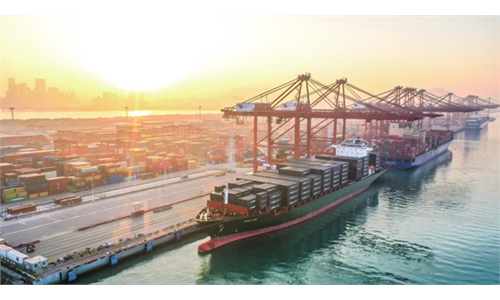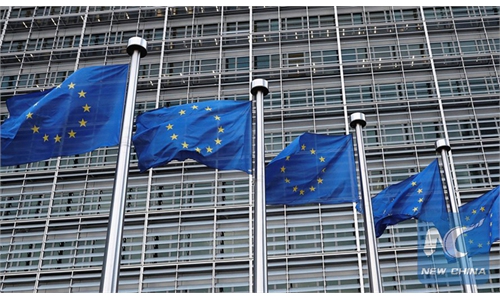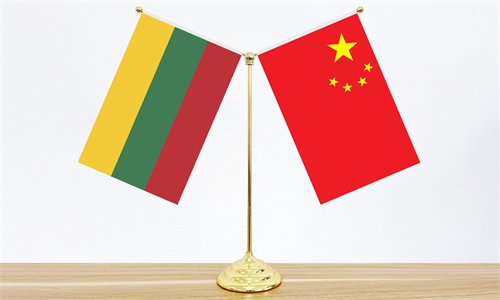
View of Vilnius, capital of Lithuania Photo: VCG
Lithuanian Foreign Minister Gabrielius Landsbergis will visit Singapore and Australia from Sunday to Thursday, with a view of opening up "new opportunities for Lithuanian exporters in advanced and stable markets in Asia and Oceania" and "diversifying its supply chains," according to a press release from the Baltic state's foreign ministry.While it is justified for Lithuania to strengthen its ties with Asia-Pacific economies, attempt to use such ties to support its challenging of China's core interests is doomed to fail.
Despite efforts to ease the pressure Lithuania is facing on foreign trade by means of expanding exports in Asia, it is worth noting that neither Singapore nor Australia have the potential to become an economic pivot allowing Vilnius to continue its mistakes that harm China's national sovereignty.
If anything, the timing of the visit is sufficient to indicate that Lithuania's domestic opposition against their government's China policy has become so loud that Vilnius must do something to show its trade prospects are not that bad after undermining China's core interests. But the fact is that although China has not announced any economic sanctions against Lithuania, the business community's eagerness to stay away from the politically risky country has inflicted a lot of pains on the Baltic state.
If politicians in Vilnius think they can offset the economic impact of their political mistakes with the so-called diversification efforts, they are in for a big disappointment, because China's market impact and industrial chain influence are irreplaceable in Asia and the world as a whole.
In fact, Landsbergis' trip to Singapore and Australia may be of more symbolic meaning than having any economic significance. The economic structures of Lithuania and the two countries are not highly complementary. Also, given the slow economic recovery in Asia in the post-pandemic era, it is conceivable how difficult it will be for Lithuania to open up any new markets in the region.
Lithuania's current economic woes are self-inflicted, and the only right course of action is to correct its mistakes. Previously, Vilnius used to release hints of changing the name of the "Taiwanese Representative Office," and it is delusional for Lithuania to muddle through its crisis and to restore trade normalcy with China simply by playing rhetorical tricks.
Moreover, losing the Chinese market is not the only challenge facing Lithuania. The more lethal blow to its economy may come from the increasing shocks to its position in the global industrial chain. While there is no denying that direct trade between China and Lithuania is limited in terms of the value and scale, the Baltic state's industries are inextricably linked to China's supply chains and industrial chains. And given China's dominant position in the global supply chain, no other economy could replace its importance to the Lithuanian economy if China wants to push Lithuanian products out of its industrial chain.
The Lithuanian government has pretended to be a victim to gain international sympathy, but let's not forget that it is Lithuania that first violated the one-China principle to challenge China's sovereignty and undermine the foundation of economic cooperation. Politicians from the Baltic state are now looking for any opportunity to solicit support from so-called allies instead of correcting their mistakes. So if you don't really care about the economic consequences of your own mistakes, why should anyone else care?



